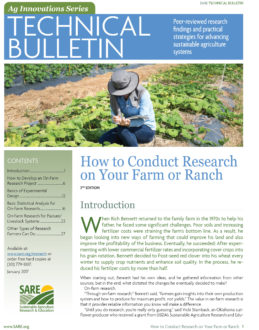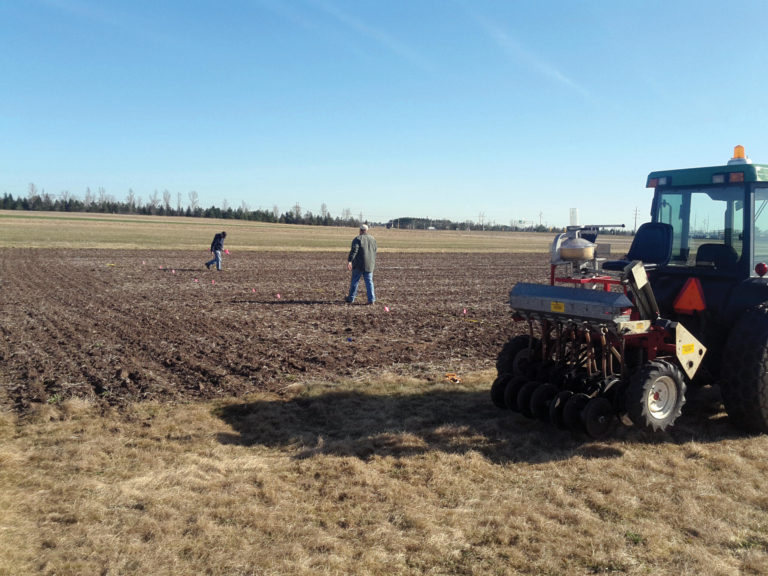Where to begin? At the center of every on-farm research project is a question that needs to be answered. Think about some of the problems you are dealing with on your own farm or ranch, or any new practices that you have been exploring. Take a moment to write down some of those key problems and ideas and, if you have the opportunity, share them with other farmers in your network or association to get their input. Communicating with other farmers can help you define the problem and hone in on what is most important.
For example, Dennis Wright, owner of Fruitwood Apiaries in New Jersey, noticed many of the hives he leased out were not surviving during the pre-pollination period in large blueberry fields. He chatted with other pollinator service providers and discovered they were seeing the same thing. This made the question worthwhile to pursue, and in 2015, Wright received a SARE grant to try to figure out why. Read about the grant.
As you work through this process, consider the kinds of questions that might emerge for each of the items on your list. Here are a few possible scenarios to spark your thinking:
- Your region of the country is experiencing a drought. Are there any changes you can make to your system to maintain productivity and profitability in the face of continuing low rainfall?
- You are seeing fuel costs skyrocket. Can you reduce tillage and still maintain the levels of production you need?
- You are observing problems with the soils on your farm (e.g., crusting, erosion, poor infiltration) and yields are down. Can cover crops provide nutrients for your cash crop and improve the quality of the soil?
- You are in the transition process to become certified organic. What methods can you use to prevent or control weed, insect or disease pests?
- You have heard about a new crop that you have never grown before. How will that new crop perform on your farm? Is there a market for it? How does it fit into your rotation?
Whether you are wondering about a specific practice, a change to your production system, farm profitability or environmental stewardship, on-farm research can help you address the questions you have about your own farm or ranch, and make wise management decisions accordingly. Whatever is on your list of opportunities and challenges can be the inspiration for an on-farm research project. But how do you move from general questions about your production system to a fully developed on-farm research project? The next section describes the process for reaching that goal.

